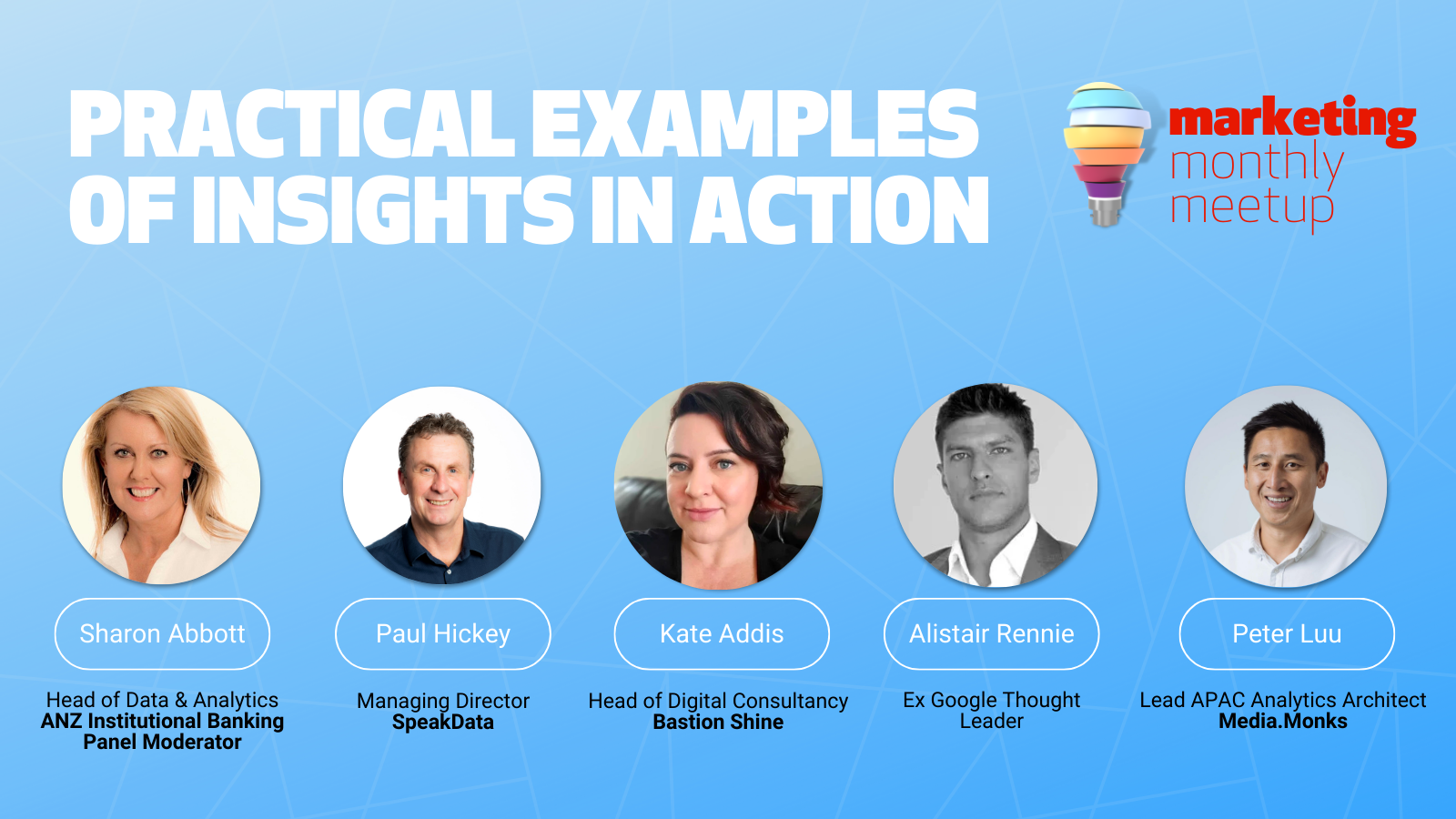.png)
First Published: 04 July, 2023

As we navigate the ever-evolving landscape of marketing, it's crucial to pause, reflect, and learn from the experts who are shaping the industry. Recently, I had the privilege of attending a panel discussion on marketing excellence, where a group of seasoned professionals shared their insights on the use of data to drive strategy and marketing campaigns. The interaction between the panelists and attendees was electrifying, and I left the event feeling inspired and eager to share what I had learned.
Our esteemed panelists included Peter from the Apex data team, Ali, a seasoned marketing consultant, Kate, with extensive experience in the corporate world, and Paul, the managing director at Speak Data. Each brought a unique perspective to the table, and their collective wisdom painted a comprehensive picture of the current marketing landscape.
Paul kicked off the discussion with a deep dive into personalisation, a term that's often thrown around in marketing circles but is rarely fully understood. He outlined five levels of personalisation, from basic segmentation to individual-level personalisation. "Personalisation is more than just changing the name on emails," Paul stated, "It requires a high level of technical sophistication at higher levels."
This insight underscores the importance of a nuanced understanding of personalisation in marketing strategies. It's not just about addressing your customer by their name; it's about understanding their needs, preferences, and behaviors and tailoring your messaging to resonate with them on a personal level.
Next, Kate shared her thoughts on the role of technology in marketing. She stressed the importance of understanding the problem you're trying to solve before selecting the technology to solve it. "Don't get caught up in the shiny stuff without considering the people, processes, and capabilities needed to make the technology work," she cautioned.
Kate's words serve as a timely reminder in our tech-obsessed world. Technology should be a tool to solve identified problems, not a solution in search of a problem. It's easy to get distracted by the latest gadgets and software, but without a clear understanding of the problem at hand and the infrastructure to support the technology, even the most advanced tools can fall flat.
Peter then took the floor to discuss the future of Customer Data Platforms: "CDPs are currently a hot topic in the industry, and as they approach mass adoption, their importance will only grow," he highlighted.
Peter also mentioned the potential of first-party data clean rooms, where publishers and advertisers can safely share their audiences to augment their data. "First-party data clean rooms could be the next big thing, allowing safe data sharing between publishers and advertisers," he stated. This concept, still relatively new in the industry, could revolutionize the way we handle and share data, opening up new opportunities for targeted marketing.
Finally, Ali delved into Google's concept of the "messy middle", the space between the purchase trigger and the purchase itself. He explained, "The 'messy middle' is where consumers explore and evaluate options - they are either exploring or evaluating and it's important to understand where they are on their journey. Understanding this space through behavioural science can help marketers guide consumers towards a purchase."
Ali's insights shed light on a critical, yet often overlooked, part of the customer journey. The 'messy middle' is where decisions are made and preferences are formed. By understanding this space, marketers can better guide consumers towards their products and services, ultimately driving sales and fostering brand loyalty.
The panel discussion was a treasure trove of insights, with each panelist bringing their unique perspective to the table. The interaction between the panelists and attendees was fantastic, creating a dynamic and engaging learning environment. The questions posed by the attendees were thought-provoking, and the panelists' responses were insightful, providing a deeper understanding of the topics discussed.
The key takeaway from the discussion is the importance of understanding consumer behaviour, using data and insights to inform strategy, and carefully considering the role of technology in marketing. As marketers, we must strive to understand our customers on a deeper level, personalising our messaging to resonate with them and guide them through the 'messy middle' of their purchase journey.
We must also remember that technology is a tool, not a solution. It's crucial to understand the problem we're trying to solve and ensure we have the people, processes, and capabilities in place to make the technology work effectively. As Peter highlighted, the future of marketing lies in data, and platforms like CDPs and first-party data clean rooms will play a pivotal role in shaping this future.
I left the panel discussion feeling inspired and eager to apply the insights I had gained. The panelists' expertise, combined with the engaging interaction with the attendees, made for a truly enriching experience. If you ever have the chance to attend such a discussion, I highly recommend it. The opportunity to learn from industry experts and engage in thought-provoking discussions is invaluable.
As we navigate the ever-evolving landscape of marketing, let's remember to pause, reflect, and learn from the experts who are shaping the industry. Let's strive to understand our customers better, use data to inform our strategies, and leverage technology effectively to solve our marketing challenges.
Category

Contact us if you have any suggestions on resources you would like to see more of, or if you have something you think would benefit our members.
Get in TouchSign up to receive updates on events, training and more from the MA.
